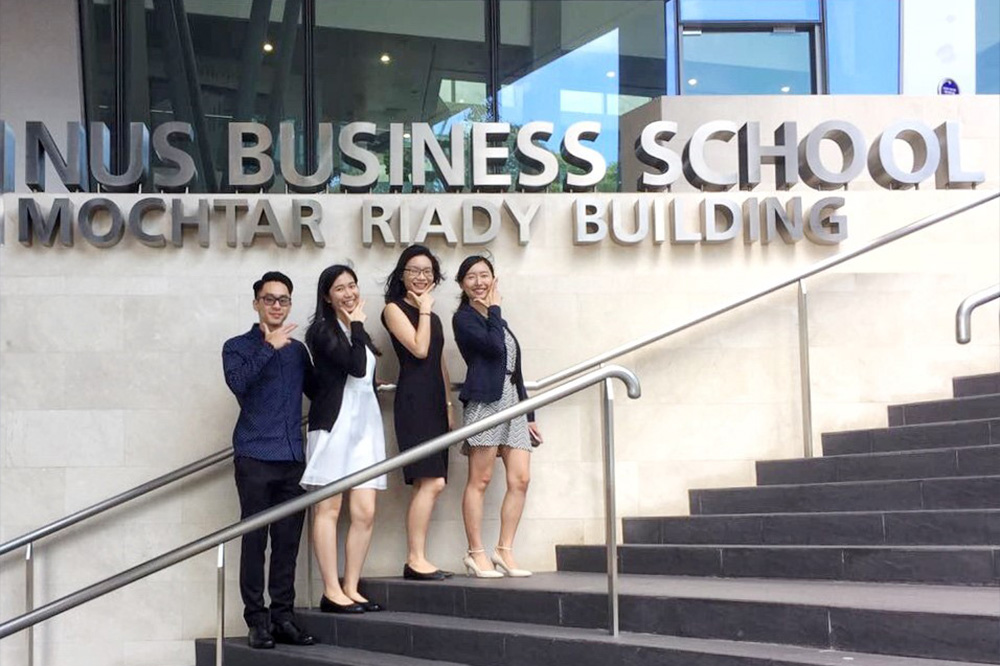BBA students Chloe Chng Hui Shan, Foo Hui Yun, Pang Ye Fun and Tan Xin Yi worked on a field service project (FSP) entitled “A New Corporate Governance Framework for Trusts in Singapore” with the Centre for Governance, Institutions and Organisations (CGIO) earlier this year. Their work was incorporated into the Singapore Governance and Transparency Index 2017, and even made it in the local news!

A song on field service projects

Here, they share their thoughts on completing their FSP that featured a strong Real Estate component.
The first semester of Year 4 (or the 2nd semester of Year 3) usually starts with a flurry of activity – applying for an FSP project, finding a professor, and most importantly forming a group. Forming a group was relatively fast for us – three of us (Ye Fun, Xin Yi and Felicia) are taking a Real Estate minor and hence knew each other (yes, you can make more Business friends by taking non-Business modules), and Chloe (minor in Communications) connected with us through another friend, and we were good to go!
We decided on working with CGIO as the project was related to Real Estate Investment Trusts (REITs) – which was our area of interest. Having taken Real Estate modules from the School of Design and Environment, we felt prepared to tackle the challenges of a project focused on corporate governance issues in Real Estate Investment Trusts (REITs). Little did we know, how research can be so challenging and definitely not for the faint of heart. We even wrote a song about it..
6 Degrees of “FSP Desperation” (an adaptation of the song 6 Degrees of Separation by The Script)
First, you think the worst is finding a Prof
What’s gonna kill you is the second part
And the third, is when your draft is all for nothing
And fourth, you’re gonna miss that 8-hour sleep
Fifth, you see the light and start to write
And the sixth, is when you admit that all this is worthwhile after all

We spent a considerable time understanding the structures of REITs, Business Trusts and Stapled Trust and poring through their financial reports. We gained a deeper understanding of REITs and the unique corporate governance issues they faced. This formed our basis in developing a corporate governance scoring framework for REITs and other types of Trust, which was then incorporated into the existing SGTI framework.
It was a great supplement to our Real Estate minor and we have some interesting takeaways which we will share with you below:
- Singapore is the second largest REITs market in Asia despite its late inception.
- A REIT is managed by an external manager instead of an internal management team in Singapore’s context.
- There are different types of REITs in Singapore where their assets composition varies from retail, office, industrial, hospitality, healthcare and logistics.
- More has to be done to improve corporate governance in areas such as disclosure, gearing, related-party-transactions, competency of the managers and pay structure.

We hope that the SGTI framework will encourage REITs, Business Trusts, Stapled Trusts and companies to enhance their existing corporate governance. Every year, CGIO tries to improve the SGTI framework to better assess corporate governance practices and we hope that by sharing our FSP experience, more NUS Business students may be interested to embark on a FSP project related to the Real Estate Industry or take up a Real Estate Minor in NUS.


